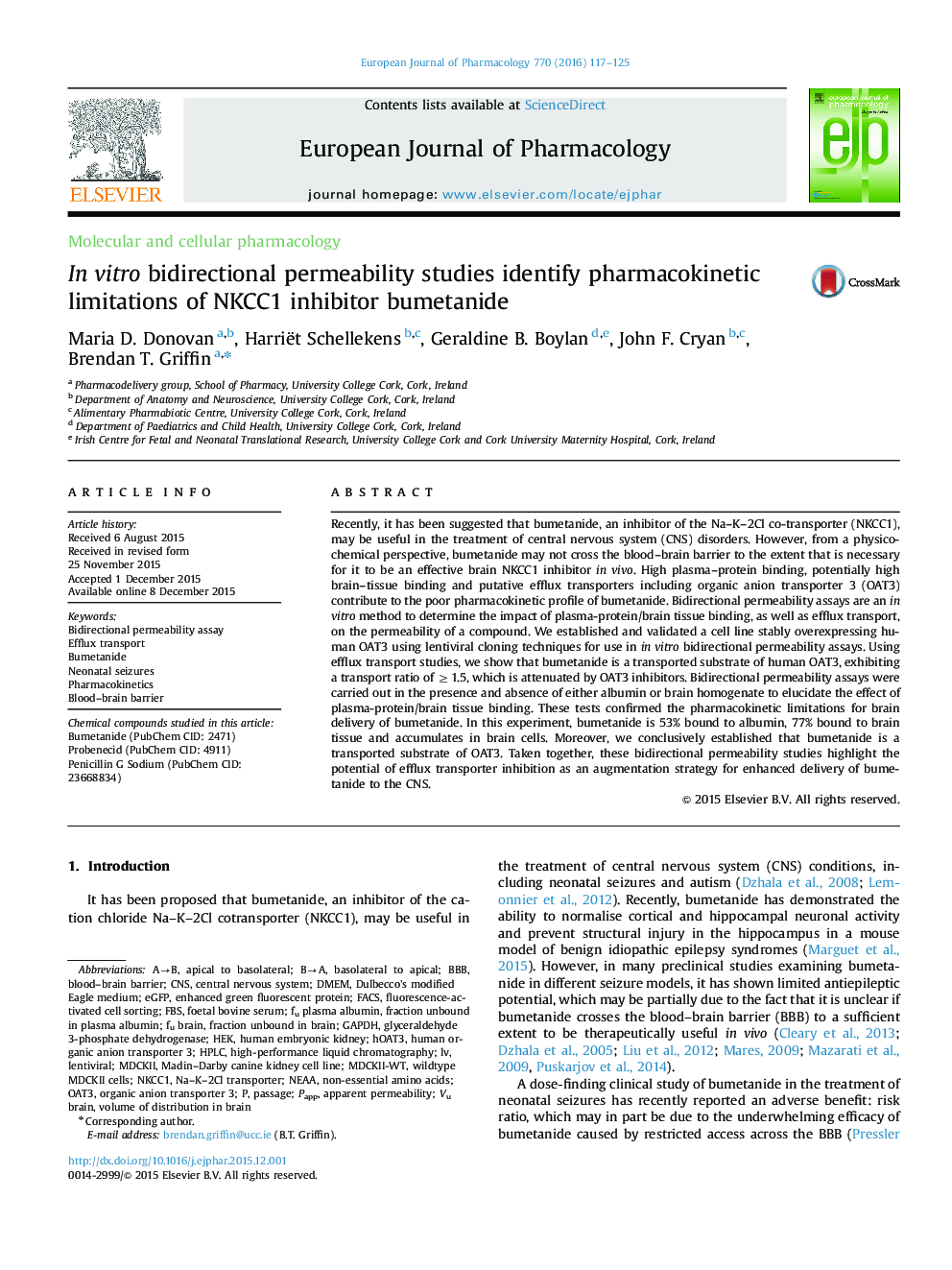| کد مقاله | کد نشریه | سال انتشار | مقاله انگلیسی | نسخه تمام متن |
|---|---|---|---|---|
| 2531184 | 1558910 | 2016 | 9 صفحه PDF | دانلود رایگان |

Recently, it has been suggested that bumetanide, an inhibitor of the Na–K–2Cl co-transporter (NKCC1), may be useful in the treatment of central nervous system (CNS) disorders. However, from a physicochemical perspective, bumetanide may not cross the blood–brain barrier to the extent that is necessary for it to be an effective brain NKCC1 inhibitor in vivo. High plasma–protein binding, potentially high brain–tissue binding and putative efflux transporters including organic anion transporter 3 (OAT3) contribute to the poor pharmacokinetic profile of bumetanide. Bidirectional permeability assays are an in vitro method to determine the impact of plasma-protein/brain tissue binding, as well as efflux transport, on the permeability of a compound. We established and validated a cell line stably overexpressing human OAT3 using lentiviral cloning techniques for use in in vitro bidirectional permeability assays. Using efflux transport studies, we show that bumetanide is a transported substrate of human OAT3, exhibiting a transport ratio of ≥1.5, which is attenuated by OAT3 inhibitors. Bidirectional permeability assays were carried out in the presence and absence of either albumin or brain homogenate to elucidate the effect of plasma-protein/brain tissue binding. These tests confirmed the pharmacokinetic limitations for brain delivery of bumetanide. In this experiment, bumetanide is 53% bound to albumin, 77% bound to brain tissue and accumulates in brain cells. Moreover, we conclusively established that bumetanide is a transported substrate of OAT3. Taken together, these bidirectional permeability studies highlight the potential of efflux transporter inhibition as an augmentation strategy for enhanced delivery of bumetanide to the CNS.
Journal: European Journal of Pharmacology - Volume 770, 5 January 2016, Pages 117–125